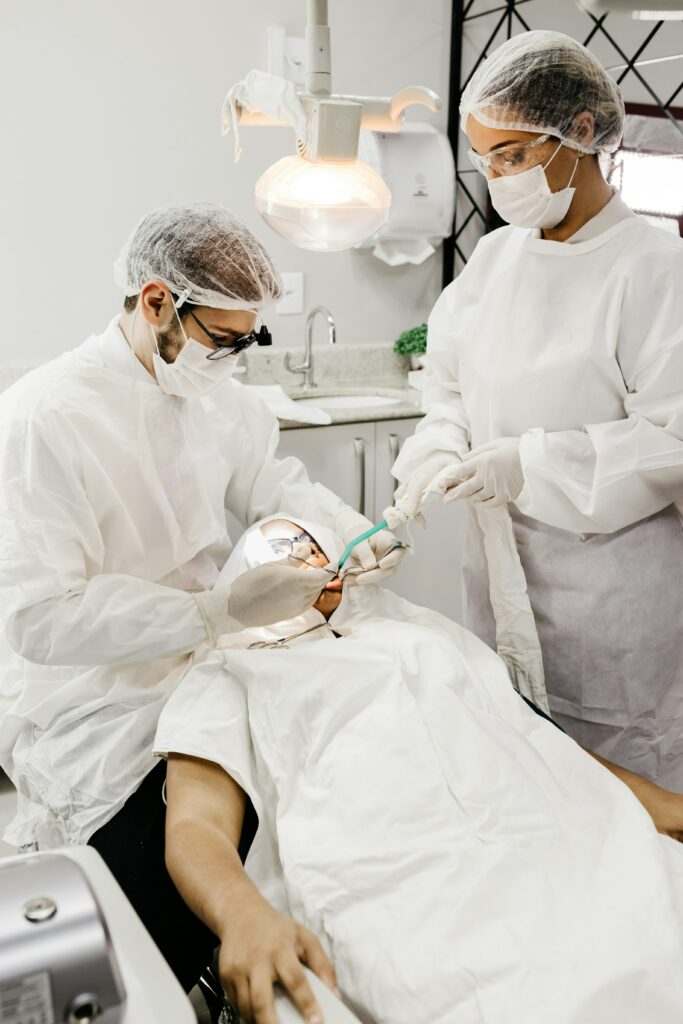Europe, with its rich history, diverse cultures, and renowned educational institutions, has long been a magnet for students seeking top-quality education. Among the myriad fields of study, dentistry stands out as a discipline offering promising career prospects and opportunities for those passionate about oral health care. In this comprehensive guide, we delve into the world of dentistry courses across Europe, exploring the diverse offerings, esteemed institutions, and key considerations for prospective students.
The European Landscape of Dentistry Education
Europe boasts a wealth of universities renowned for their excellence in dentistry education. From the historic halls of venerable institutions to state-of-the-art facilities, students have a plethora of options to choose from. Some of the leading countries offering dentistry courses include the United Kingdom, Germany, Spain, Italy, Sweden, and Hungary, among others. Each nation presents its own unique advantages, whether it’s a focus on research and innovation, clinical experience, or cultural immersion.
United Kingdom: Pioneering Education in Dentistry
The United Kingdom stands as a pioneer in dental education, with its prestigious universities setting the benchmark for excellence. Institutions such as King’s College London, University of Birmingham, and University of Glasgow offer comprehensive undergraduate and postgraduate programs, combining theoretical knowledge with practical clinical experience. The UK’s General Dental Council (GDC) ensures that graduates meet rigorous standards, preparing them for successful careers in dentistry.
Germany: Innovation and Research
Germany’s reputation for innovation extends to its dentistry education sector. Renowned universities like Ludwig Maximilian University of Munich and Charité – Universitätsmedizin Berlin provide cutting-edge research opportunities and interdisciplinary collaboration. With a strong emphasis on evidence-based practice and technological advancement, German dental programs equip students with the skills needed to excel in a rapidly evolving field.
Spain and Italy: Cultural Diversity and Clinical Experience
In Spain and Italy, students not only benefit from world-class education but also immerse themselves in vibrant cultures and diverse landscapes. Institutions like the University of Barcelona and University of Milan offer dentistry courses that emphasize hands-on clinical training alongside theoretical learning. Students have the opportunity to work with experienced practitioners, gaining valuable insights into different dental specialties and treatment modalities.
Sweden: Focus on Preventive Dentistry
Sweden’s approach to dentistry education places a strong emphasis on preventive care and public health. Universities such as Karolinska Institute and Umeå University integrate preventive dentistry principles into their curriculum, preparing students to address oral health challenges at both individual and community levels. Sweden’s commitment to evidence-based practice and patient-centered care ensures that graduates are well-equipped to promote oral health and prevent dental diseases.
Hungary: Hub of Dental Tourism
Hungary has emerged as a popular destination for international students seeking high-quality yet affordable dentistry education. Institutions like Semmelweis University and University of Debrecen attract students from around the globe with their English-taught programs and state-of-the-art facilities. With Hungary’s reputation as a hub of dental tourism, students have the opportunity to gain practical experience while serving diverse patient populations from different parts of the world.
Key Considerations for Prospective Students
While Europe offers an array of enticing options for dentistry education, prospective students should carefully consider several factors before making their decision:
-
Admission Requirements
Each university may have specific admission criteria, including academic qualifications, language proficiency, and entrance exams. It’s essential to thoroughly research the requirements and ensure that you meet them before applying.
-
Language of Instruction
While many European universities offer dentistry courses in English, some programs may be taught in the local language. Prospective students should assess their language proficiency and choose a program that aligns with their linguistic abilities.
-
Costs and Financial Aid
Tuition fees and living expenses vary across European countries. Students should consider their budgetary constraints and explore scholarship and financial aid options available to international students.
-
Clinical Experience
The quality and extent of clinical training offered by each program can significantly impact students’ readiness for professional practice. Look for programs that provide ample opportunities for hands-on experience under the guidance of experienced faculty.
-
Accreditation and Recognition
Ensure that the program you choose is accredited by relevant dental authorities and recognized internationally. Graduating from an accredited program enhances your credibility and facilitates licensure and employment opportunities worldwide.
Embarking on a journey to study dentistry in Europe opens doors to a world of opportunities, blending academic excellence with cultural enrichment and professional growth. Whether you aspire to pursue research, clinical practice, or community outreach, Europe’s diverse array of dentistry courses caters to a wide range of interests and ambitions. By conducting thorough research, weighing your options, and planning ahead, you can chart a course toward a fulfilling career in dentistry while immersing yourself in the rich tapestry of European education and culture.





